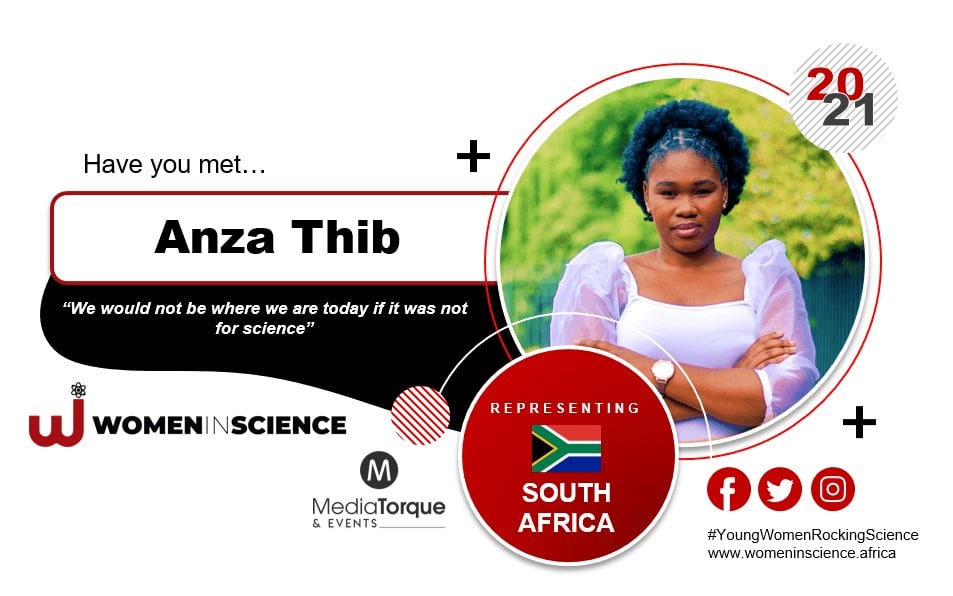Anza Thiba grew up in a tiny village called Mafukani in Venda and has two siblings. Both her parents are teachers. She and her two brothers went to school in town called Tshikevha Christian School. She started her schooling here from grade R to 12, which she completed in 2011.
When she was growing up she had an inquisitive mind; always eager to discover and question things around. And she grew older she developed an intense interest for the world of science. What particularly intrigued was bacteria, she wanted to know and understand how this tiniest organism is capable to cause so many health problems.
And today she is living her dream as she is studying for PhD in microbiology at the University of the Witwatersrand. Thiba says she could not believe it when Wits accepted her application for her undergraduate studies. This is because she was made to believe that only those who passed with distinctions can get to study there.
And once she was accepted she burned the midnight oil and this paid off as she completed her undergraduate degree and MSc degree in record time. “To be quite honest, I did not know much about postgraduate studies and research. When I got to my Honours degree, I knew this was my calling. I felt a strong sense of belonging in scientific research,” she says.

“We would not be where we are today if it was not for science”, she reckoned. Basic things like how we breathe to complex things such as how Covid-19 attacks our immune system. It is also through science that we can explain why aeroplanes move or how I can pick up a phone and talk to someone in America,”
The other reason why Thiba pursued science is because life revolves around science and that there is just so much to learn from it. “We would not be where we are today if it was not for science”, she reckoned. Basic things like how we breathe to complex things such as how Covid-19 attacks our immune system. It is also through science that we can explain why aeroplanes move or how I can pick up a phone and talk to someone in America,” says Thiba.
She added that it is also with the help of science that we know that one needs to drink 2litres of water to stay hydrated and now we have a better understanding of how our bodies function. “It’s about how you know that if you have a wound, you need to clean it with saltwater or how you need to add bicarb of soda to the water when you have an upset tummy,” she says.
But Thiba is worried about some of the obstacles that women still encounter in the science environment primarily because of patriarchy. “Science, especially at postgraduate level and above, is male-dominated. You struggle with everyday things like being cat-called by co-workers or being denied opportunities because you are a woman. It is not easy to get into specific spaces because we are not regarded as worthy or just get told that we are too emotional.”
Furthermore, she says, most supervisors prefer to work with men “because they do not get pregnant and won’t waste their time”. It is sad that we had to start forums such as this one to start recognising that women are smart and capable of producing the same results men do. Thiba is a recipient of several accolades, a clear indication that she is making remarkable strides in the science fraternity. Some of these include:
- Golden Key membership
- Recipient of the Gauteng City Regional Academy scholar.
- 3rd runner up prize at The Wits First PhD seminar
- 1st prize Bert Myburg forum, for an oral presentation
- 3rd prize for an oral presentation at the Stroke and Hypertension conference.
Her abstract has been published in the South African journal of surgery. Thiba said she has a few papers ready to be published in some of the highly rated journals later in the year.
Thiba’s message to future generations of young women wanting to get into science is that if they really want to get into academics, they should do it! “Do not be discouraged or allow people to derail you from your dreams. You are deserving and worthy of being in such spaces. Speak up, be confident, and take up space! Just be careful of the institutions you work with or for. Not everyone has your best interest at heart,” she advises.







